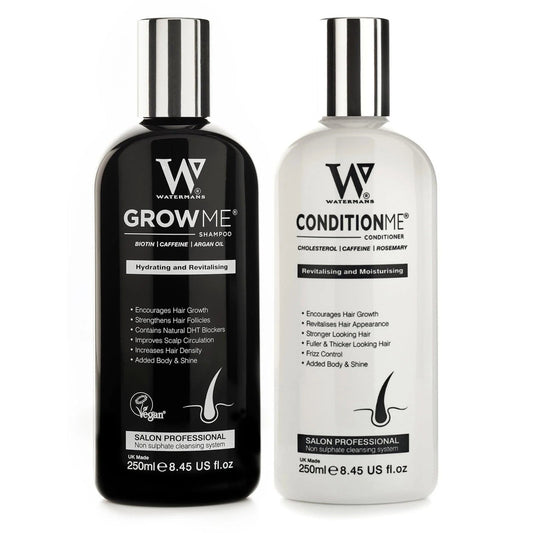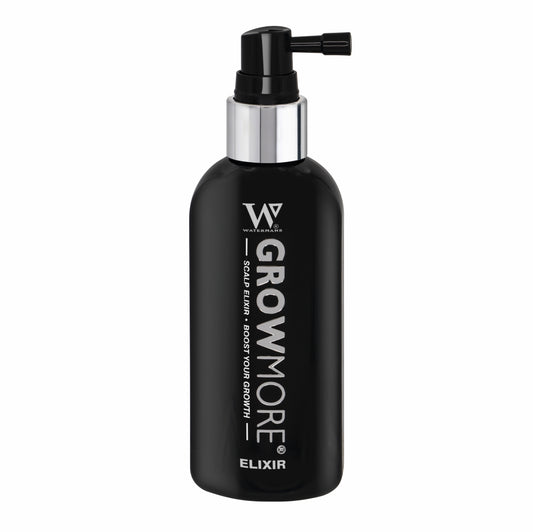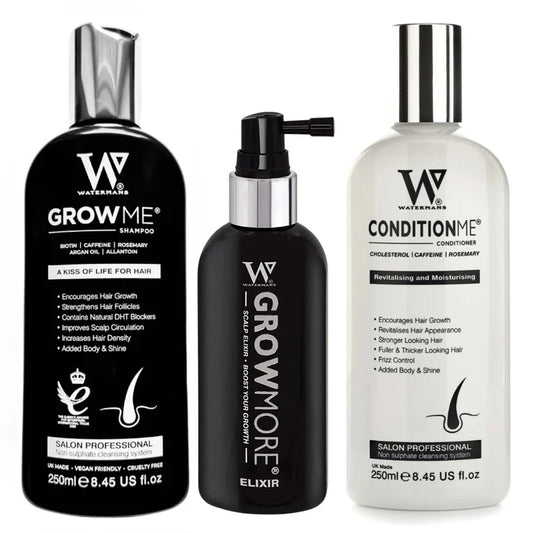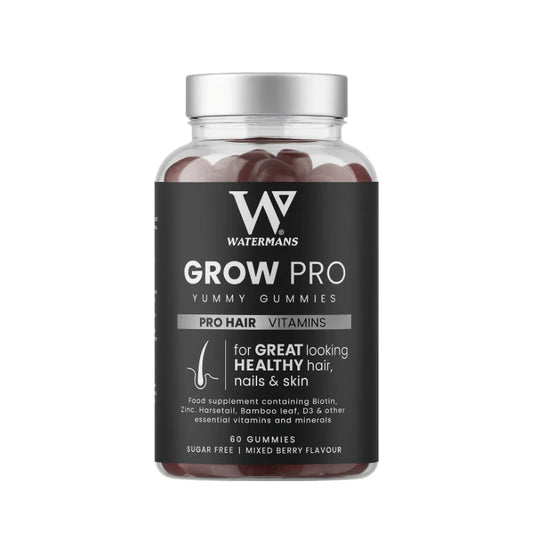Navigating the Waves: Understanding Hormonal Fluctuations and Their Impact on Your Health
Share

Hormonal Fluctuations: Unraveling the Mysteries of Hair Loss
Hormonal fluctuations can be a puzzling experience for many individuals. Understanding how these fluctuations impact your body, especially concerning hair loss, is crucial for maintaining overall health. In this article, we delve deep into hormonal fluctuations, their connection with hair health, and the viable solutions available.
What Are Hormonal Fluctuations?
Hormonal fluctuations refer to the normal variations in hormone levels that occur throughout life. These changes can result from various factors, including stress, diet, age, and medical conditions. The body produces a wide array of hormones, such as estrogen, testosterone, progesterone, and cortisol, which all play integral roles in bodily functions.
How Hormones Affect Hair Growth
Hair growth is a complex process that can be influenced by hormonal levels. Estrogens, found predominantly in females, promote hair growth, while androgens, primarily male hormones, can contribute to hair thinning and loss in both men and women.
The Hair Growth Cycle
To understand how hormonal fluctuations affect hair health, it’s essential to first grasp the hair growth cycle. This cycle consists of three phases:
- Anagen Phase (Growth Phase): This is the active phase where hair is actively growing. Hormones like estrogen contribute to prolonging this phase.
- Catagen Phase (Transitional Phase): This short phase lasts for a few weeks. During this time, hair growth slows and the hair follicle begins to shrink.
- Telogen Phase (Resting Phase): Usually lasting around 3 months, hair falls out, and new hair begins to grow. Hormonal imbalances can disrupt this phase.
Common Hormonal Changes and Their Effects on Hair
1. Puberty
During puberty, both males and females experience significant hormonal changes that can result in acne and changes in hair growth patterns. In some instances, increased androgens can lead to conditions like polycystic ovary syndrome (PCOS) in women, contributing to hair thinning.
2. Menstrual Cycle
For females, the menstrual cycle can result in fluctuations in estrogen and progesterone levels. During menstruation, lower estrogen levels may cause temporary hair thinning, which often normalizes after the cycle concludes.
3. Pregnancy
During pregnancy, estrogen levels rise, which can lead to thicker, healthier hair. However, postpartum hair loss often occurs due to a sudden drop in these hormone levels after childbirth.
4. Menopause
As women approach menopause, estrogen levels decline, leading to a host of changes, including hair thinning and loss. This is exacerbated by an increase in androgens relative to estrogen levels, making hair follicles more susceptible to thinning.
5. Stress-induced Hormonal Fluctuations
Stress can lead to a spike in cortisol, often referred to as the 'stress hormone.' Elevated cortisol levels can negatively impact hair growth, leading to a condition called telogen effluvium, where hair follicles prematurely enter the resting phase.
Solutions for Hormonal Hair Loss: Natural Remedies
Understanding the root cause of hormonal fluctuations and their impact on hair health is vital. One of the most natural and effective solutions available is the Watermans Grow Me Shampoo.
The Magic of Watermans Grow Me Shampoo
Watermans Grow Me Shampoo is designed to nourish hair from the roots using a unique blend of natural ingredients. Here's what makes it a standout choice:
- Biotin: Known as vitamin H, biotin supports healthy hair growth and can strengthen hair follicles effectively.
- Rosemary: This essential herb stimulates blood circulation in the scalp, promoting hair growth while adding shine.
- Caffeine: Acting as a stimulant, caffeine can energize hair follicles and improve their function.
- Niacinamide: A form of vitamin B3, it helps to improve scalp health and can regulate oil production.
- Argan Oil: Rich in fatty acids, argan oil hydrates hair, making it softer and more manageable.
- Allantoin: This powerful moisturizer helps soothe the scalp and reduces irritation.
- Lupin Protein: This plant-based protein strengthens hair and helps to prevent breakage.
By incorporating Watermans Grow Me Shampoo into your hair care routine, you can combat the effects of hormonal fluctuations on your hair health.
Other Natural Approaches to Managing Hair Loss
1. Proper Nutrition
A balanced diet rich in vitamins and minerals is essential for healthy hair. Incorporate whole foods such as fruits, vegetables, nuts, and lean proteins to provide your body with the necessary nutrients.
2. Stress Management
Techniques like yoga, meditation, and regular exercise can reduce stress levels, balancing cortisol and other hormones that impact hair growth.
3. Regular Scalp Massages
Massaging the scalp increases blood flow and can stimulate hair follicles. Incorporate essential oils like peppermint or lavender for added benefits.
4. Adequate Hydration
Staying hydrated is crucial not only for general health but also for your hair follicles. Drink plenty of water to maintain optimal scalp vitality.
5. Limiting Heat and Chemicals
Excessive heat and chemical treatments can damage hair. Embrace natural hairstyles whenever possible and reduce the use of damaging hair products.
Did You Know?
- Did you know that hair grows faster during the day? Most research shows that hair growth occurs more rapidly in the daytime due to increased blood flow and metabolic activity.
- Did you know that the average person has about 100,000 hair follicles on their scalp? Hair follicles can produce varying hair types and colors based on genetic factors.
- Did you know that stress can make you lose up to 100 strands of hair daily? This hair loss is often reversible once the stress diminishes.
- Did you know that all hair grows at the same rate? Individual genetics largely determine how long hair remains in each phase of growth.
- Did you know that your shampoo might be affecting your hair's health? Many commercial shampoos contain harsh chemicals that can strip hair of its natural oils, making it more susceptible to damage and hormonal impact.
Q&A Section
1. What are the signs of hormonal hair loss?
Signs include thinning hair, increased hair shedding, and changes in hair texture.
2. Can I reverse hair loss due to hormonal changes?
While some types of hair loss are temporary, using the right products like Watermans Grow Me Shampoo can significantly help with growth and thickness after addressing hormonal issues.
3. Are there specific supplements for healthy hair?
Yes, supplements that include biotin, zinc, and omega-3 fatty acids can support hair growth.
4. How long does it take to see results from hair growth shampoo?
Most people start to notice improvements in hair texture and fullness within 8-12 weeks of regular use.
5. Can diet really influence hair health?
Absolutely! A well-balanced diet rich in vitamins and proteins can enhance hair quality and growth.
6. Do genetic factors play a role in hair loss?
Yes, genetic predisposition can greatly influence the likelihood of hair loss and the pattern of thinning.
7. At what age do people typically start experiencing hair loss?
While hair loss can occur at any age, many individuals start noticing changes in their late twenties to early thirties.
8. How can I tell if my hair loss is related to hormones?
Consult with a healthcare professional who can assess your hormone levels and discuss your symptoms in detail.
9. Is it normal for hair to thin as I age?
Yes, it's common for hair to thin as people age due to hormonal changes and decreased hair follicle activity.
10. Should I see a doctor about my hair loss?
If hair loss is sudden or accompanied by other symptoms, it’s essential to consult with a healthcare provider for diagnosis and treatment options.
By understanding hormonal fluctuations and their relationship to hair health, you can make informed choices about your care routine. Remember to consider Watermans Grow Me Shampoo as your go-to solution for combatting natural hair loss!



